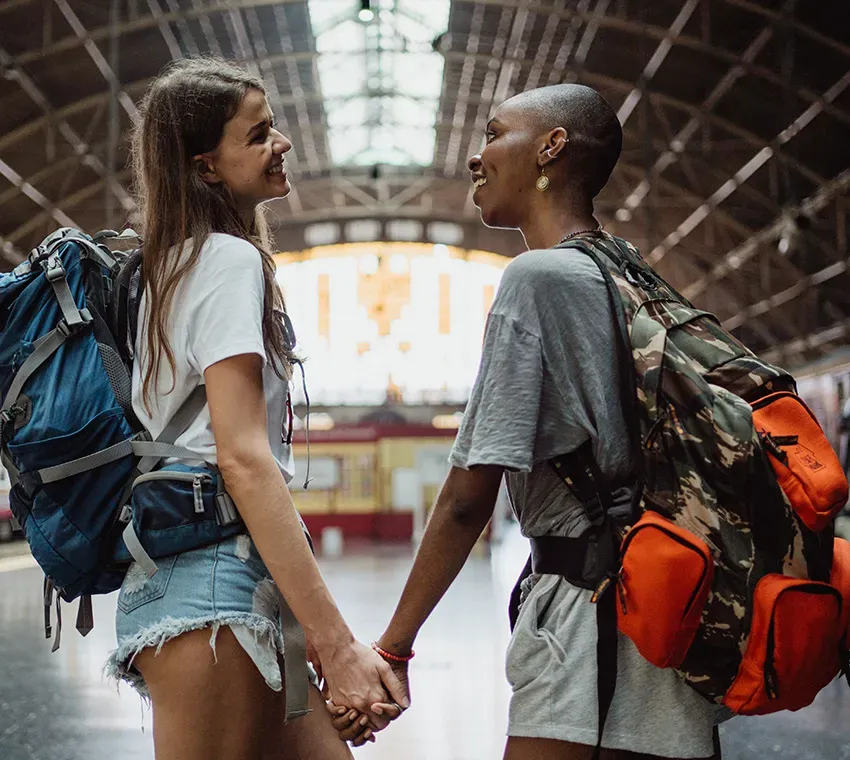In light of the overturning of Roe v. Wade, the refusal to pass more restrictive gun laws (and strengthen concealed-carry protections), and the threat to Queer and Trans rights, many are finally looking to leave the United States. Whether it's a summer travel destination or a permanent new residency, LGBTQ+ people looking to go abroad must take extra precautions to ensure their safety.
Luckily, the SGN is here to help, with an extensive guide to the best and worst locations for LGBTQ+ people around the world.
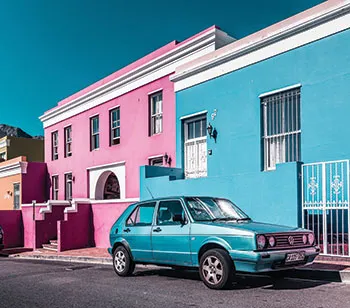
Africa
Africa is the world's richest content, full of cultural and environmental diversity. For LGBTQ+ people looking to travel to the continent, experts recommend the de facto "Queer capital" of the continent: Cape Town, South Africa.
While South Africa has its own history of racism, homophobia, and sexism, it has made strides toward becoming a much more liberal place for people of all kinds.
In 1996, under the presidency of Nelson Mandela, it became the first country in the world to make discrimination based on sexual orientation illegal in its constitution. In 2006, South Africa became the fifth country in the world, and the only African one, to make same-sex marriage legal. In the LGBTQ+ Travel Safety Index of the world's most LGBTQ+-friendly nations, it is slightly above the United States, because of the anti-discrimination protections for LGBTQ+ people. The country is also highly accepting of Transgender people, allowing anyone to change their name or sex on legal documents, including birth certificates.
Despite South Africa's acceptance of the LGBTQ+ community, travel experts suggest sticking to major cities like Cape Town. The country's strong historical ties to colonialism mean that those in rural areas still hold onto religious and primarily Catholic views, which are not accepting of the LGBTQ community.
In contrast to South Africa's reputation, the continent as a whole is home to some of the strictest anti-LGBTQ+ laws in the world.
Known for being one of the worst countries for LGBTQ+ people, Nigeria should be avoided by Queer travelers at all costs. Twelve predominantly Muslim states in the north of Nigeria use sharia (Islamic) law (although only Muslims are supposed to be subject to it), which offer harsh penalties for being Gay.
In Nigeria, discussing LGBTQ+ rights is heavily criminalized. And if a person is suspected of participating in homosexual behavior, they can receive up to 14 years in prison. While other parts of the world have begun to move towards acceptance, in 2013 Nigeria effectively made same-sex marriage illegal. The Same-Sex Marriage (Prohibition) Act led to an increase in violence and extortion against the LGBTQ+ community.
Another hot destination for people looking to travel to Africa is Malawi, home to some of the last black rhinos. Unfortunately, Queer animal lovers should also steer clear, as its strict anti-LGBTQ laws criminalize Gay sex; convicted men can get up to 20 years in prison, and women can receive up to five.
Anti-LGBTQ+ laws have not prevented some African countries from becoming tourist traps, but travelers should be warned: states like Egypt, Morocco, and Algeria take tourist traps very literally.
While travelers flock to Egypt to see historic sites, Morocco for nightlife, and Algeria for the amazing architecture, experts warn LGBTQ+ people looking to go to the area to avoid public displays of affection and using gay dating apps like Grindr. Homosexuality is illegal in all three countries, and police often create fake accounts on dating apps to try and trap travelers, who can also face two years in prison for "possession of homosexual materials." In Morocco, the penalty is even steeper, with guilty parties facing three years behind bars for Gay sex and two years for public indecency (which can include PDA).
Some African countries are even more strict and will convict suspected LGBTQ+ people for breaking sodomy laws. In the Gambia, Gay sex will earn a person the same prison sentence as murder. In Sudan, a first and second conviction will get a person five years, but the third conviction means life in prison or the death penalty. In Uganda, penalties for homosexuality have increased; as of 2021, a conviction for homosexuality will lead to life in prison.
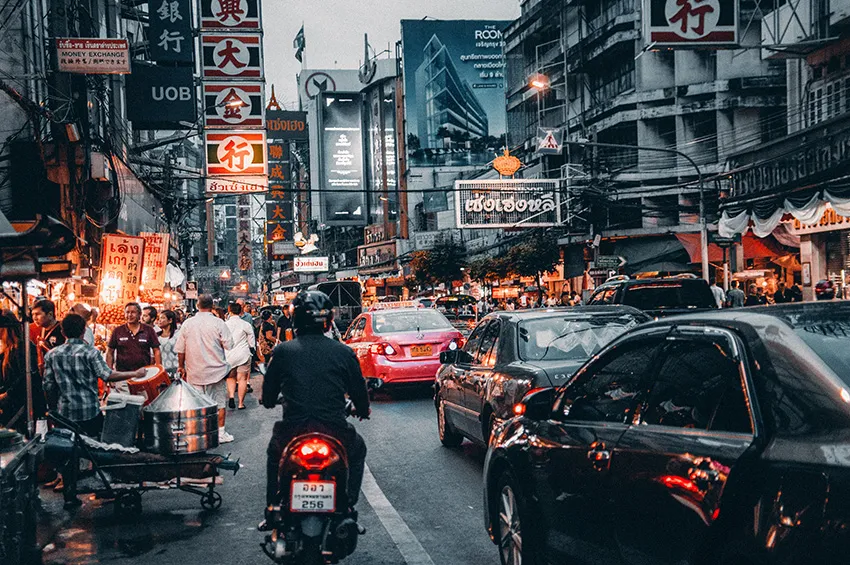
Asia
For Queer travelers looking to explore Asia, there is no better destination than Bangkok, Thailand. While the LGBTQ+ Travel Safety Index rates Thailand, as a whole, several spots below the United States, Bangkok in particular is known to be a haven for LGBTQ+ people.
Unlike other nations with long histories of European colonization, Thailand was never formally colonized, which means its culture has remained pretty intact compared to other countries influenced by strict European ideologies. As a result, Thailand, as a society, views LGBTQ+ people as natural. Its constitution also explicitly bans discrimination based on sexual orientation and gender identity.
Despite Gay sex remaining legal, Thailand still does not recognize same-sex domestic partnerships, civil unions, or marriages, which is something to keep in mind for anyone considering a permanent move. However, Bangkok is a great destination for anyone looking to travel, especially for those on a budget, as it is one of the most affordable cities in the world.
Like those looking for a destination in Africa, Queer travelers should be wary that many countries in Asia also criminalize homosexuality and should be avoided. The most dangerous one in the world for LGBTQ+ people, according to the LGBTQ+ Travel Safety Index, is Brunei, a small nation bordering the South China Sea.
In 2019 Brunei passed the world's strictest anti-LGBTQ+ laws, condemning men convicted of the crime of homosexuality to death by stoning. Women face a slightly better fate but are still sentenced to imprisonment and caning if found guilty.
Capital punishment is the reality for LGBTQ+ people in other countries, such as Saudi Arabia, Qatar, the United Arab Emirates, and Iran, which are all ruled by sharia law to some extent. In Yemen, Gay men can face the death penalty if married. If single, they can face 100 lashes and a year in prison. Marriage status does not matter for Lesbians in Yemen; if found guilty, they can receive 11 lashes and up to three years in prison.
In Afghanistan, LGBTQ+ people also face the death penalty. Community members are also encouraged to take part in "honor killings," wherein they may legally murder their neighbors if they have proof of them participating in homosexuality.
In Pakistan and Iraq, people convicted of having Gay sex can face life in prison. Iraqi people can also suffer steep fines and even a year behind bars if they broadcast pro-LGBTQ+ songs or statements.
Other Asian countries, like Oman, Malaysia, and Myanmar, have also begun drafting laws to criminalize Transgender identities. In Oman, "imitating the opposite sex" is a crime punishable by prison time, and in Malaysia and Myanmar, different forms of gender expression are also criminalized.
Even in popular travel destinations, LGBTQ+ people face severe penalties and discrimination. In Singapore, one of the world's richest nations, laws still exist on the books against Gay sex. Punishments are severe and can include caning and up to two years in jail. However, these laws are rarely enforced. Singapore still does not grant any family rights, including marriage and adoption, to same-sex partners.
The People's Republic of China, like Singapore, does not recognize LGBTQ+ relationships and has laws on the books against homosexuality, although they are only enforced in more conservative areas of the country. China also has strict censorship laws, under which pro-LGBTQ organizations are subject to penalties.
Another popular travel destination, the Philippines, is slightly more welcoming to LGBTQ+ people. While travelers are safe from laws that criminalize Gay sex and affection, citizens do not have legal rights to marriage, adoption, or changing gender identity on legal documentation.
Asian travel hubs like India, Japan, and South Korea have much better recognition of LGBTQ+ rights. In India, homosexuality has been legal since 2018, and Transgender people have a constitutional right to change their gender and even identify as Nonbinary. However, same-sex marriage is still not legal.
In Japan, homosexuality has been legal since 1880, though no formal recognition of relationships or adoption exists. Japan also recognizes Transgender people and allows for a change of sex and name on documents, but only after a person undergoes both reassignment surgery and sterilization.
South Korea currently has no protections against discrimination. The country also does not recognize Gay marriage or adoption as legal, and its military does not condone homosexuality, even though it is legal nationally. Military service is mandatory for all male citizens, which forces Gay and Bisexual men to serve under a policy similar to "don't ask, don't tell."
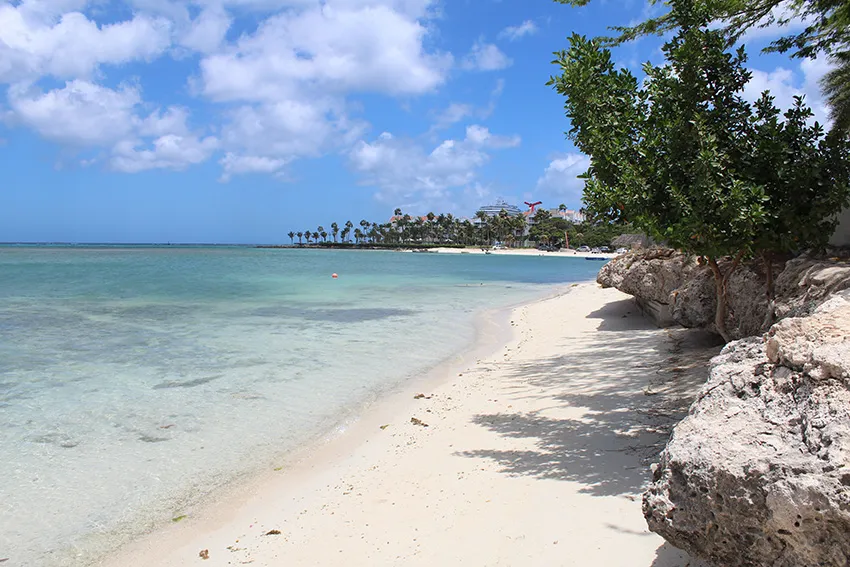
Caribbean
One of the most popular travel regions in the world, the Caribbean boasts gorgeous turquoise waters, silky beaches, and a laid-back island vibe. One thing that's not chill about the Caribbean, however, is the many countries in the region that still criminalize homosexuality.
While none currently rank above the United States in terms of safety, Puerto Rico, which is a territory of the United States, does grant all LGBTQ+ citizens the same benefits recognized by the federal government, including marriage equality and adoption. Puerto Rico also has several laws that protect Queer and Trans youth.
Only slightly worse than Puerto Rico, Cuba is another relatively safe option for LGBTQ+ people looking to travel to the Caribbean. Homosexuality has been legal in Cuba since 1979, under then-President Fidel Castro. Cuba also allows people to change their gender and does not require proof of medical transition. The constitution protects LGBTQ+ people against discrimination, including gender-identity discrimination, but does not recognize same-sex marriage or adoption.
For anyone looking to find a cute beach boy, Aruba is another safe option. The country recognizes same-sex partnerships, and while same-sex marriage is illegal on the island, those performed elsewhere, such as in the Netherlands, are recognized and respected.
In the island nations of Trinidad and Tobago, homosexuality has recently been decriminalized. In 2016 the prime minister said that "the State has a duty to not persecute citizens, regardless of whom they sleep with." While this was progress, same-sex family rights, Transgender rights, and protections against discrimination have yet to be enacted.
While the Bahamas is a popular honeymoon destination for many, don't expect anyone there to recognize Gay marriage or adoptions, and no protections against discrimination exist. Reports of violence against LGBTQ+ tourists have also increased over the last ten years.
Saint Lucia and Barbados are two locations that should be avoided by LGBTQ+ travelers looking to take an island vacation. In the former, colonial anti-buggery laws are still on the books and enforced, with the highest penalties going to anyone who participates in anal sex, a maximum of life in prison (the same penalty as in Barbados, where nonsexual Gay acts can get up to ten years).
The worst country for LGBTQ+ people to visit in the Caribbean may come as a shock. Jamaica, as it turns out, is known not only for reggae but also for strict laws against Gay people. Those convicted of buggery can receive up to 10 years in prison and hard labor. Tourists have also reported high levels of homophobic violence in Jamaica, which Time magazine named "the most homophobic place on earth" in 2003.
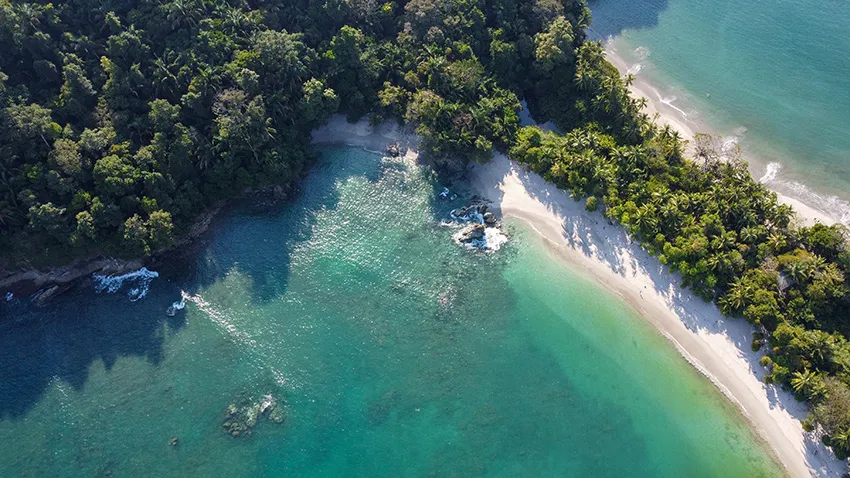
Central America
Glowing with culture and nightlife, Central America is rich in history, cuisine, and artwork. For LGBTQ+ travelers, the best location is Costa Rica. Not only were same-sex marriage and adoption legalized in 2020, but President Carlos Quesada publicly apologized to the LGBTQ+ community for past discrimination and persecution. Now, the country bans discrimination and even allows Transgender people to determine their names and genders on all documentation.
While it's not quite Costa Rica, the next best option for anyone looking to travel to Central America is Nicaragua, where homosexuality has been legal since 2008. It also bans sexual orientation and gender identity-based discrimination, which helped to lower the number of reported hate crimes. Nicaragua does not recognize same-sex marriage yet but has been active in the UN, calling on other nations to decriminalize homosexuality.
Following in the footsteps of Nicaragua, Panama also decriminalized homosexuality in 2008. It also recognizes Transgender people, but only after they have undergone surgery. In alignment with the history of the local Guna people, the culture recognizes a third gender, omeggid. However, years of Spanish colonization have also created a stigma around homosexuality that has yet to dissipate. The country does not acknowledge same-sex marriage or adoption rights, but activists there have continued to challenge marriage laws, hoping they will soon change.
The nations with the worst ratings in Central America according to the LGBTQ+ Travel Safety Index are Belize and Guatemala. While homosexuality is legal in both, that's where the rights end. In Guatemala, homosexuality was a part of cultural and traditional practices before the Spanish conquest. Following the introduction of Christian laws, same-sex relations were punished by being burned at the stake.
Neither Guatemala nor Belize allows Transgender people to change their gender on any legal documents, although in Guatemala, people are allowed to change their names. LGBTQ+ culture is very underground in both countries. In Guatemala, only one Gay bar was allowed to be open until 1999. In Belize, where the Catholic Church remains popular, citizens have rallied to ensure that same-sex marriage not be legalized following the decriminalization of homosexuality.
Reports have also come out of Guatemala of a "social cleansing campaign" in which anti-LGBTQ+ groups targeted and killed suspected homosexuals to rid society of them. The government does not have any protection to prevent hate crimes and often refuses to investigate when the victim is known to be a sexual minority.
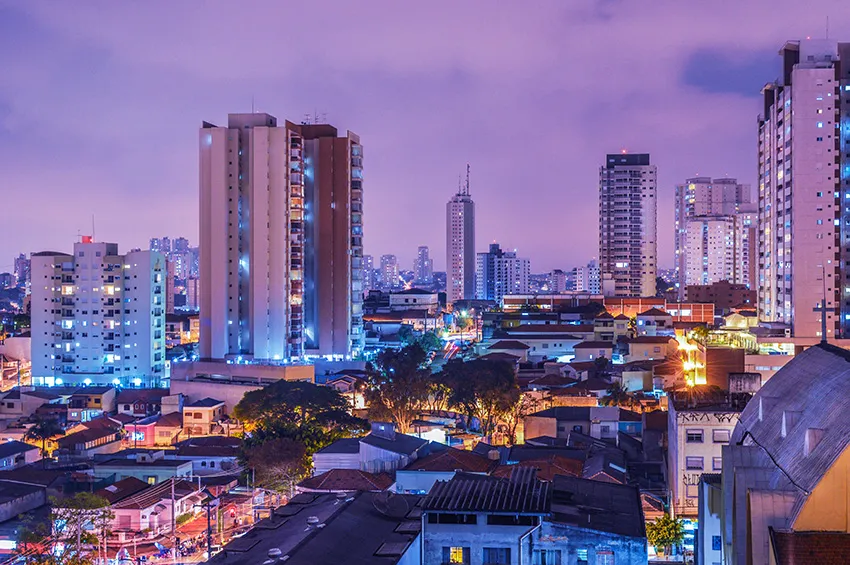
South America
South America has become a haven of LGBTQ+ tolerance, with Brazil scoring surprisingly high on the index, even though it is known for hate crimes against the community. Since 2013, marriage has been legal there, and vague protections against discrimination exist. Gender change is also legal in Brazil, and up until recently, LGBTQ+ men were allowed to donate blood.
Travel experts advise LGBTQ+ people to stick to major cities when traveling to Brazil, but overall, the country is one of the safest and most fun for Queer people to visit. São Paulo hosts the largest Pride celebration on the planet. The city is very inclusive of LGBTQ+ people and even hosts a must-see-stop for any Queer history enthusiasts: the Museu da Diversidade Sexual.
Another South American gem is Argentina, ranked as one of the safest for LGBTQ+ people. In 2010, it was the first country on in South America to legalize same-sex marriage. Because it is so welcoming to LGBTQ+ travelers, Queer scenes can be found in just about any city, including major travel hubs like Buenos Aires and even in smaller cities like Mendoza.
Buenos Aires is home to several Queer tango halls for travelers, as well as steakhouses, which have been hailed the best in the country. For travelers looking to soak up some Pride vibes, the ideal time to visit Buenos Aires is November, when the annual Pride parade is held.
While there are many great South American nations where LGBTQ+ people can enjoy legal freedoms, some are still a bit behind the times. One of these is Peru, where homosexuality has been legal since 1924, but marriage and civil unions are illegal under the constitution. The country also refuses to acknowledge the validity of same-sex marriages from abroad, meaning that married couples cannot buy a property or adopt children together in Peru.
One South American destination travel that experts warn should be avoided is Paraguay. One of the most conservative spots in South America, Paraguay, like Peru, includes a ban on Gay marriage in its constitution. It also refuses to acknowledge unions formed abroad and has strict laws preventing discussion of LGBTQ+ topics in schools. Religious fundamentalism is also on the rise in the country, where hate crimes against the LGBTQ+ community are not only common but often encouraged by influential members of the clergy.
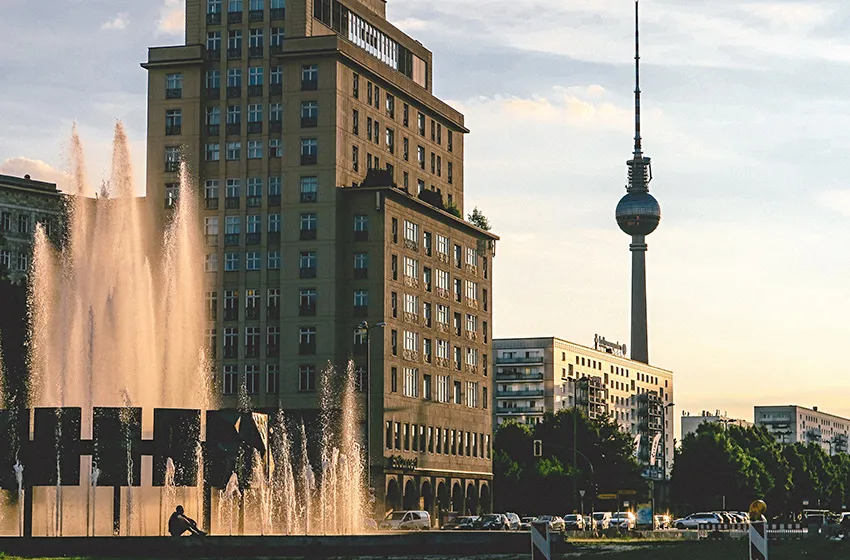
Europe
Europe is home to many of the best places for LGBTQ+ people to live, based on safety and overall quality of life. The European city with the highest travel recommendations is Berlin, Germany, which has historically been known as a hub for sexual liberation. In the 1920s, it was the city with the most lively and advanced Gay subculture in Europe. Of course, abhorrent persecution by the Nazis followed shortly after this renaissance.
Today, however, Germany celebrates all types of sexualities, especially during July, when the city sees back-to-back LGBTQ+ events and parties, including Berlin Gay Pride, Propaganda, and the Lesbian & Gay City Festival. The most hopping Queer neighborhood is Nollendorfplatz, which many visitors swear is a must-see.
Another top LGBTQ destination in Europe is Spain (particularly Barcelona), which legalized same-sex marriage in 2005. Since 2014 the state where Barcelona is located, Catalonia, has passed several anti-homophobia laws to protect and defend the rights of Queer and Trans people. Catalonia has some of the best protections for LGBTQ+ people in the world, including a law that fines those who physically or morally offend members of the LGBTQ+ community up to 140,000 euros.
The best LGBTQ neighborhood in Spain, Eixample, is also located in Barcelona and is known as "Gayxample." There, travelers can find some of the best Gay bars in Europe, including La Federica, Gingin Gay Bar, Punto BCN, Candy Darling, and Boys Bar.
Another great LGBTQ+ destination in Spain is Madrid, home to the largest Queer community in the country: an estimated 500,000 within the city limits. The center of the community is Chueca, where the highest concentration of LGBTQ+ bars and clubs can be found. July is the best time to visit Madrid, as it is when the city holds Europe's largest Pride parade, drawing a crowd of nearly two million people each year!
Pride isn't the only LGBTQ+ event in Madrid. Every first Saturday in July is "Gay Day," when families, couples, and singles enjoy a free day at the city's theme park. Madrid also hosts Mad Bear in December, a celebration of the Bear community and all those who cherish them.
Another great spot for LGBTQ+ people looking to take a trip or even relocate is the gorgeous Netherlands, particularly, Amsterdam, where one of the city's mottos, "Live and let live," perfectly encapsulates the nations's views on homosexuality, which has been legal there since 2001. The country was also the first in the world to allow civil marriages between same-sex couples.
The Netherlands hosts many LGBTQ+ Pride festivals throughout the year, but none are quite as fantastical as the Canal Parade. For a week, from July 30 to August 7, boats sail along the Prinsengracht canal decorated in Pride paraphernalia to celebrate the diversity and resilience of the LGBTQ community.
Another top European destination for anyone hoping to live out their Heartstopper fantasy is Brighton, in the United Kingdom. This town is known as one of the UK's most Gay-friendly cities, as it's been a haven for Gay people since the 19th century, and as a result, it is flourishing with beautiful and historic Queer-oriented buildings and bars. Many of the Gay bars there have been around and operating since the 1930s and can be found in the Gay Village, a delightful area nestled in the center of the Kemp Town district.
Another excellent destination for LGBTQ+ travelers looking for a taste of the UK is London. This historical and famous city is known for many tourist destinations, including Big Ben and the Great Wheel, but it is also home to Europe's largest LGBTQ+ community. Each March, London hosts one of the largest LGBTQ+ film festivals, the Gay and Lesbian Film Festival, drawing in filmmakers from around the world. The LGBTQ+ epicenter of London is located in the neighborhood of Old Compton Street and the surrounding SoHo area, where one does not have to walk far to find a welcoming Gay bar or nightclub.
If you're looking to have a Call Me by Your Name type of summer, Italy is of course the destination. However, the country still has limited rights for LGBTQ+ people. Marriage is not legal in Italy, but civil unions and partnerships are recognized. Italy also does not allow same-sex couples to adopt children together unless they are stepchildren from a previous marriage. Despite lacking marriage equality, Italy has been pretty progressive in terms of Trans rights, allowing for documented transitions since 1982.
On the other hand, reports from Italy have stated that LGBTQ+ couples are often mistreated and face homophobia if they attempt to live openly, and on occasion, they are targeted and even killed. The country remains one of the more religiously conservative and still holds strong ties to the Catholic Church. For LGBTQ+ people hoping to travel to Italy, experts recommend sticking to the major cities of Rome, Catania, and Naples.
To no one's surprise, there are, of course, places to avoid when traveling to Europe. The main one experts advise LGBTQ+ tourists to avoid is Russia, where Queer people are targeted by propaganda and home to the continent's harshest anti-LGBTQ+ laws.
In recent years, intolerance of homosexuality has been on the rise there. As of 2015, 86% of Russians said that they believed homosexuality should not be accepted. Anti-Gay purges are also common in Russia: members of the police force will kidnap, detain, and often torture men suspected of homosexuality. At best, Russia is a country where LGBTQ+ people must stay quiet about their identities or face verbal and physical backlash, and at worst, where even the suspicion of being Gay is enough to earn one a horrible death.
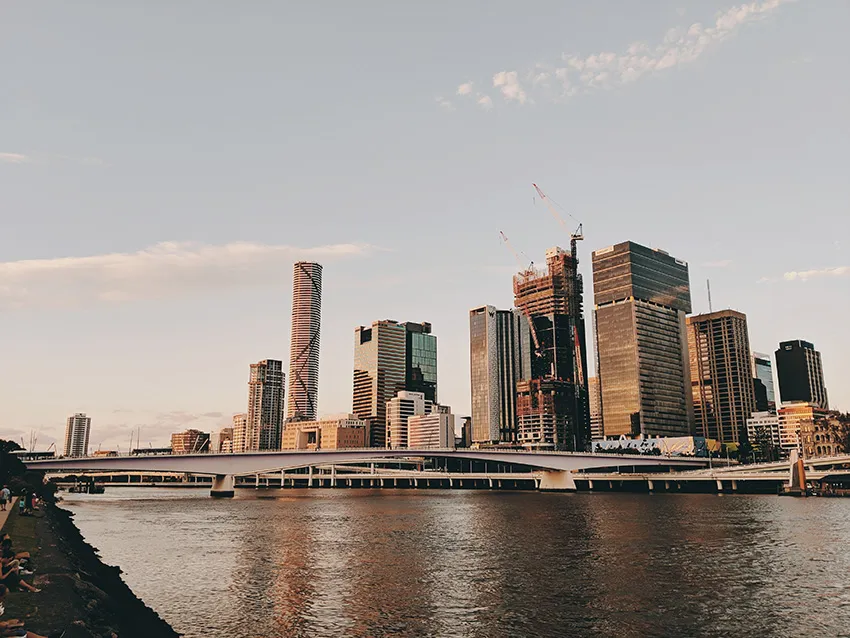
Oceania
Two of the best countries in the world for LGBTQ+ people are Australia and New Zealand, where Gay marriage has been legal since 2017 and 2013, respectively.
Australia is known for its chill parties and laid-back attitudes, but it is also home to some of the best Queer-oriented festivals in the world. For Australians, Pride begins in September, when Brisbane celebrates with a month-long festival. From the first day to the last, streets are full of parades, celebrations, and nonstop parties.
Once the events die down in Brisbane, Perth's PrideFest launches in October and November, commemorating the riots and protests that were essential to LGBTQ+ Australians winning marriage rights and overall acceptance in society.
In January and February (summer Down Under), Melbourne hosts the Midsumma Festival, celebrating the arts and culture of the LGBTQ+ community.
The best city for Queer people in Australia is Sydney, which hosts the yearly Gay and Lesbian Mardi Gras, attracting about 70,000 people each year. It also boasts some of Australia's best Gay bars and clubs, including the Stonewall Hotel, which was inspired by the original historic site in New York City.
Another top-tier destination for Queer people is New Zealand, ranked as one of the top countries for LGBTQ+ people and the first Oceanian nation to legalize same-sex marriage in 2013. There are also strong anti-discrimination laws protecting both Queer and Trans identities.
New Zealand is also one of the only nations in the world with protections against genital mutilation of Intersex people. A third X gender is available for Trans, Nonbinary, and Intersex people on all legal documents.
The Māori culture in New Zealand has long accepted both homosexuality and Transgender identities. They even have words for Trans women (whakawahine) and Trans men (tangata ira tāne). In recent years the Māori people have also held Auckland Pride each February.
While New Zealand is a much quieter country in terms of parties and nightlife, there are still some wonderful Pride events, such as "Winter Pride" in the cold Southern Hemisphere months of June and July. The biggest are held in Auckland, including drag queens on skis!
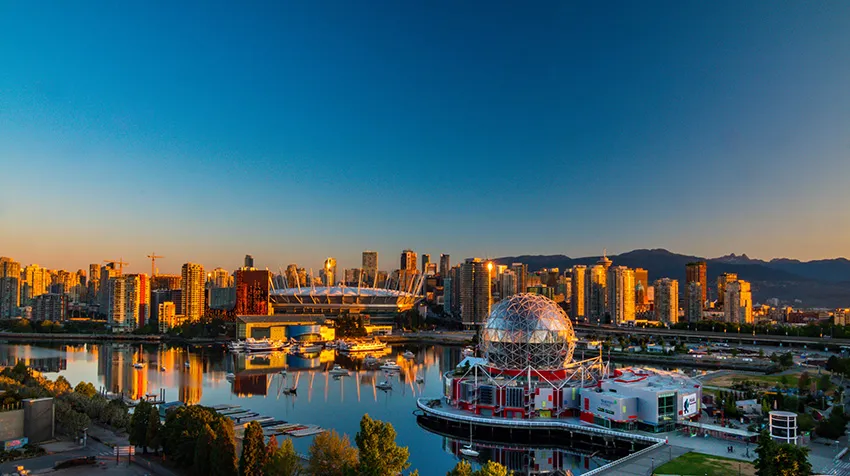
North America
While North America is home to the United States, where LGBTQ+ rights are being threatened more and more, the continent also has the country ranked as the most LGBTQ+ friendly in the world on the LGBTQ+ Travel Safety Index: Canada. Homosexuality has been legal there since 1969, as has marriage equality since 2005. Federal protections against discrimination have been in place since 1996, and expanded protections for gender identity were added in 2017. Canada has also gone further than most other nations by banning conversion therapy nationwide in January 2022.
Just a few hours' drive from Seattle is one of the world's most LGBTQ+-friendly cities: Vancouver, which hosts the country's second-largest Pride parade each June, regularly attended by 650,000 people, including Prime Minister Justin Trudeau.
The largest Pride parade in Canada can be found in Toronto, which is the nation's Gay hub and home to its largest LGBTQ+ neighborhood, the "Gay Village," in the Church-Wellesley district.
Canada is known around the world for being a skier's paradise, so every winter LGBTQ+ ski enthusiasts gather to hit the slopes together two weeks at the end of January at the Whistler Pride and Ski Festival, now the world's largest LGBTQ+ ski gathering.
For travelers looking to head south of the border instead, Mexico is another great destination. The country has become much more open to LGBTQ+ people in recent years, with many parts having legalized Gay marriage. Despite conservative regions still not allowing legal same-sex marriages, the Mexican Supreme Court has declared that all must acknowledge LGBTQ+ marriages conducted elsewhere. It is interesting to note that Queer and Trans acceptance was already a part of Indigenous Mexican culture before colonization.
Guadalajara has become so well known for its LGBTQ+-friendly environment that it has earned the nickname "the San Francisco of Mexico." The Chapultepec neighborhood is the best place to find Gay spaces there, including several upscale night spots. Guadalajara also hosts one of the biggest Gay Pride parades in all of Latin America.
Mexico City is considered a hub for Gay nightlife as well, with the central Zona Rosa neighborhood home to the Queer nightlife scene. All of Mexico's major cities include several Gay bars, with other popular locations being Cancún and Puerto Vallarta.
Whether you're looking to leave the United States for a brief respite or permanently, there are many options for LGBTQ+-friendly destinations in this wide world.
However, choosing the wrong country to travel to can have serious consequences for Queer and Trans people, so members of the community should always do their research before traveling or moving abroad.


